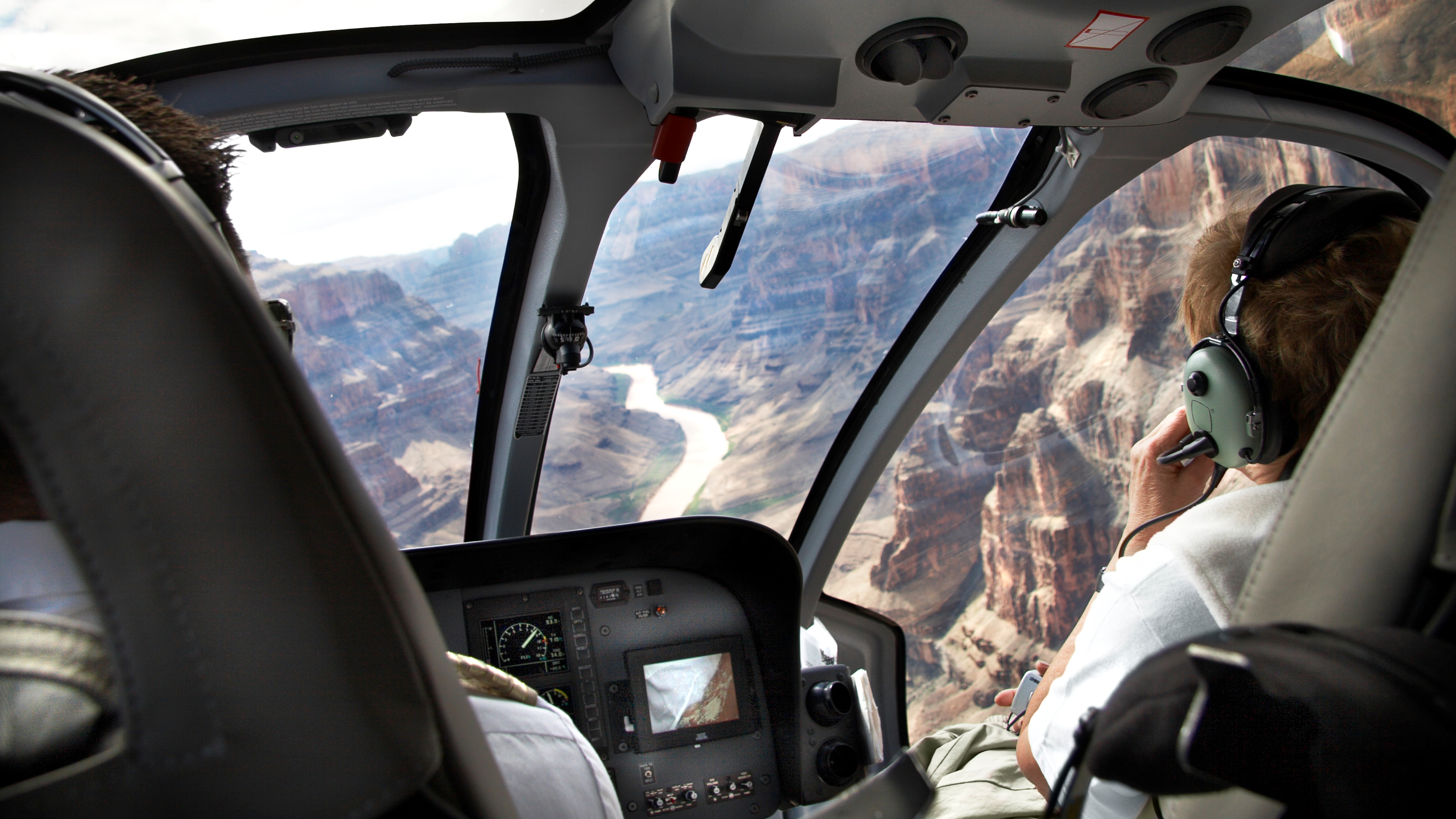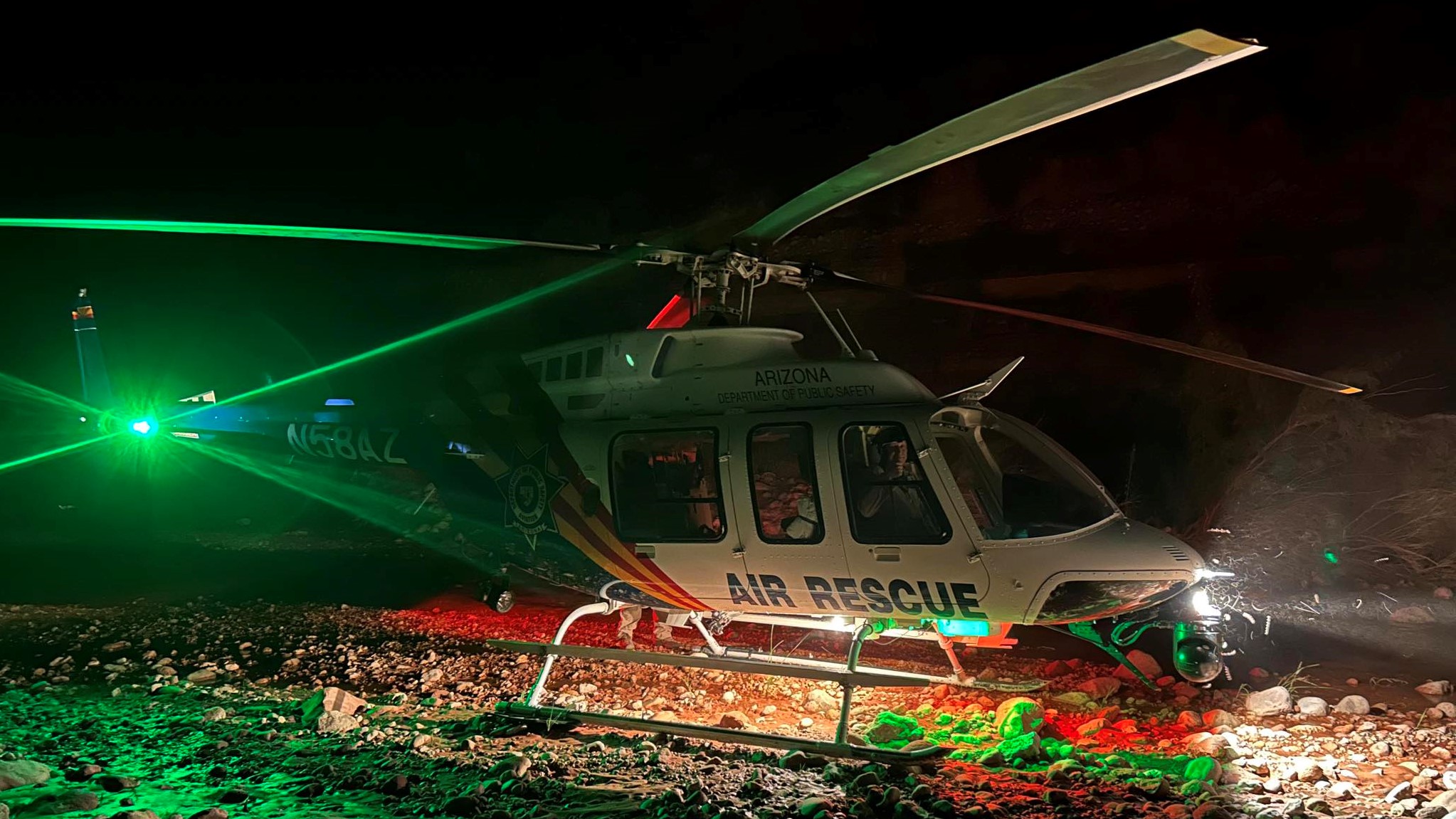63-year-old injured hiker rescued from Grand Canyon after friends leave him behind
The hiker had suffered a traumatic shoulder injury and was unable to continue

A 63-year-old man suffering traumatic injuries was rescued from the north rim of the Grand Canyon on Friday evening after the group he was hiking with left him behind.
According to a Facebook post by the Mohave County Sheriff's Office, they received an emergency call from a man using an Apple device through satellite connection at around 6 p.m. on September 15. Search and rescue then deployed via helicopter to the man's given location at Kanab Creek, but had to land about a quarter mile away due to the difficult terrain and dark conditions.
"It was fortunate that the helicopter was able to rescue this injured hiker, as it would have taken an extended period of time for ground crews to reach his location."
The rescue crew then proceeded through the creek on foot and located the man, finding him alone having fallen and suffered a shoulder injury that required emergency medical attention. The team was able to stabilize the hiker and transport him via helicopter to a hospital in Flagstaff.

The Sheriff's Office reports that they don't know exactly what time the original call was made, but they learned that the injury had occurred four hours prior to the call, at 2 p.m. that day, when the man was hiking with four other friends. Once he contacted authorities, the group, who were reportedly several days into a week-long backpacking trip, left him alone and continued with their hike – something rescuers warn hikers never to do.
"Search and Rescue encourages everyone to never leave someone behind alone and whenever possible, to stay with them and ensure they are rescued before continuing on their journey."
In addition to staying together and understanding backcountry safety, it's important to always carry the hiking essentials including a first aid kit when venturing into remote areas.
All the latest inspiration, tips and guides to help you plan your next Advnture!
If you’re looking to embark on expeditions into the wilderness, a satellite communicator is more reliable than smartphones both in terms of their ability to remain operational in tough conditions and in terms of finding a signal to get your messages out. Learn more in our article on satellite communicators.
Julia Clarke is a staff writer for Advnture.com and the author of the book Restorative Yoga for Beginners. She loves to explore mountains on foot, bike, skis and belay and then recover on the the yoga mat. Julia graduated with a degree in journalism in 2004 and spent eight years working as a radio presenter in Kansas City, Vermont, Boston and New York City before discovering the joys of the Rocky Mountains. She then detoured west to Colorado and enjoyed 11 years teaching yoga in Vail before returning to her hometown of Glasgow, Scotland in 2020 to focus on family and writing.

